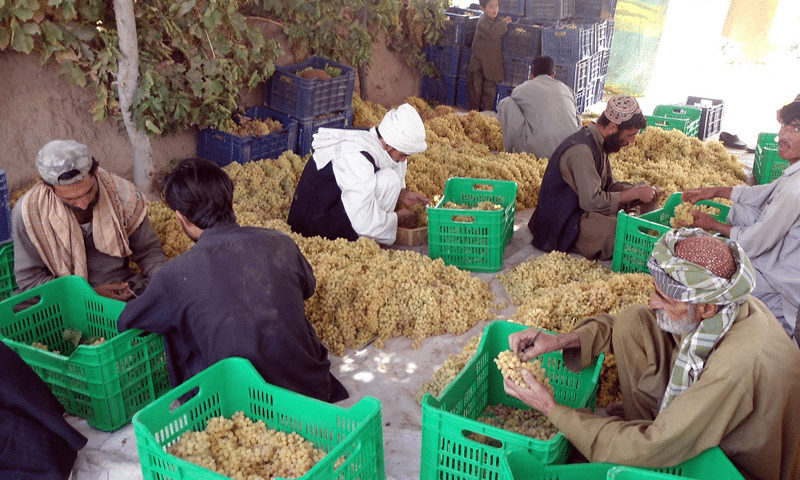QUETTA: Pakistan and Afghanistan have signed a key agreement to boost bilateral trade through preferential tariffs on agricultural goods. The agreement will lower import duties on eight selected items. It will take effect on August 1, 2025, with the possibility of future expansion to include more products.
The Taliban-led Afghan government released a statement confirming the agreement. Molvi Ahmadullah Zahid from Afghanistan’s Ministry of Industry and Commerce and Javed Paul, Pakistan’s Secretary of Commerce, signed the deal in Kabul.
Under the agreement, both countries will reduce tariffs on the selected items from 60% to 27%.
Afghanistan will export grapes, pomegranates, apples, and tomatoes to Pakistan. In return, Pakistan will send mangoes, kinnows, bananas, and potatoes to Afghanistan.
However, farmers and business groups in Balochistan have strongly objected to the agreement.
Nafs Ahmad, a farmer from Ziarat, told WE News that the deal could significantly lower the prices of local produce, harming farmers financially. He said Balochistan produces millions of tons of apples and tomatoes each year—enough to meet domestic needs.
He clarified that farmers do not oppose all imports, but importing goods that Pakistan already produces in abundance raises serious concerns.
Muqaddas Ahmad added that despite Afghanistan’s limited production, countries like Iran could send their apples to Pakistan via Afghan routes. He warned this could severely hurt local farmers. He also noted that Balochistan lacks processing plants, forcing farmers to sell their crops at low prices.
On the other hand, Sher Ali from the Fruit and Vegetable Association welcomed the agreement. He said it would expand trade and stabilize fruit and vegetable prices in both countries.
Sher Ali pointed out that last year, high taxes made fruits like grapes and pomegranates unaffordable for the average consumer. Now, with the tax falling from Rs. 200 per kg to around Rs. 50–55, prices will drop significantly.
In recent years, high duties nearly ended cross-border fruit and vegetable trade. Sher Ali believes the new deal will not only balance prices but also create new jobs.





